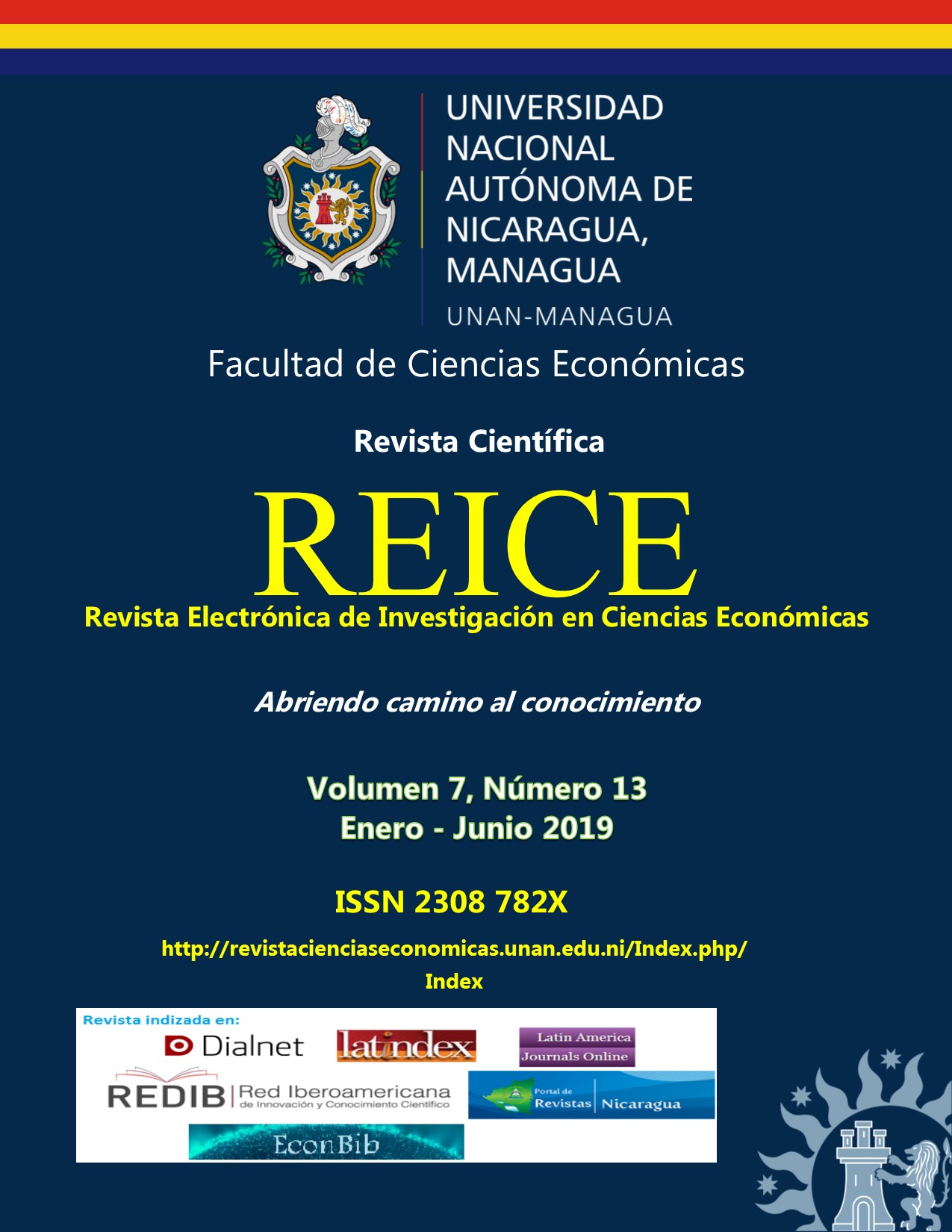Directed to humanistic development: Sustainable management of natural resources. The Realejo, Chinandega.
DOI:
https://doi.org/10.5377/reice.v7i13.8176Keywords:
Humanistic Development, Extractive Economy, Sustainable Management, Natural Resources, Social Institutions.Abstract
The increasely narrow links between the mother earth and the economics systems force us to look up for and think about alternatives to our lifestyles. This alternatives have to be sustainable and based on the environmental and human capacities that will recognize their limits and take advantages of their actual system to lead the process of transformation toward other lifestyles. In this case, it will be analyzed the socioeconomic context of El Realejo, Chinandega which has important natural resources such as fertile land, mangrove forest, and sweet water rivers; however, their actual economy mainly depends on extractive activities as a result of the dynamics in the land tenure by the hand of the monocultivation companies that sow peanut or sugar cane, among others that cultivate shrimps. On the other hand, there is an important factor which is the lack of economic alternatives, according to the population. Here as the first step toward the humanistic development, it will comes up with the necessary institutions and actions to promote changes toward the sustainable management of the natural resources and economy. The method for this analysis is the ethnography with a direct and indirect observation, and the non-consecutive documental research in the years 2016, 2017 and 2019.
Downloads
References
Alberto, Q. (2006). Metodología de la Investigación Cientifico Cualitativa. Psicología: Tópicos de actualidad, 48-84.
Angulo, R. A. (2010). Economías extractivas y desarrollo sostenible: análisis y reflexiones de sus relaciones, a partir de la explotación pretrolera del Putumayo. Bogotá: Universidad Nacional de Colombia.
Avellaneda, A. (1998). Petroleo, colonización y medio ambiente en colombia. Bogotá: Ecoe ediciones.
Comíns, J., & Reinoso Moreno, D. (2012, Julio-diciembre). La delimitación del ámbito rural: una cuestión clave en los programas del desarrollo rural. Revista Estudios Geográficos, Vol. LXXIII, 599-624.
Fidel, C. H., Di Tomaso, R., & Farías, C. (2008). Territorio, condiciones de vida y exclusión: el Partido de Quilmes. Buenos Aires, Argentina: Consejo Latinoamericano de Ciencias Sociales.
Gonzales, J., & Hernandez, Z. (2003). Paradigmas Emergentes Y Métodos De Investigación en el Campo de la Orientación.
Guerrero Pupo, J., Cañedo, A., Salman Lengarin, E., Cruz, Y., Perez Quintero, G., & Rodriguez Lora, H. (2006).
Calidad de vida y trabajo: algunas consideraciones útiles para el profesional de la información. Acimed, 5.
J. Bastiaensen, P. Merlet y S. Flores. (2015). Rutas de desarrollo en territorios humanos. Managua: UCA Publicaciones.
Muñoz, R. A. (2010). Economias extractivas y desarrollo sostenible: Analisis y reflexiones de sus relacione, a partir de la explotación petrolera de Putumayo. Bogota, Colombia.
Schneider, S. (2009). La pluriactividad en el medio rural brasileño: características y perspectivas para la investigación. In H. Valle, & L. Martínez, La pluriactividad en el campo latinoamericano (pp. 208-209). Quito, Ecuador: FLACSO.

